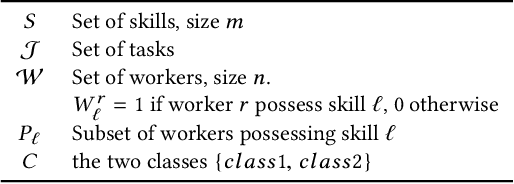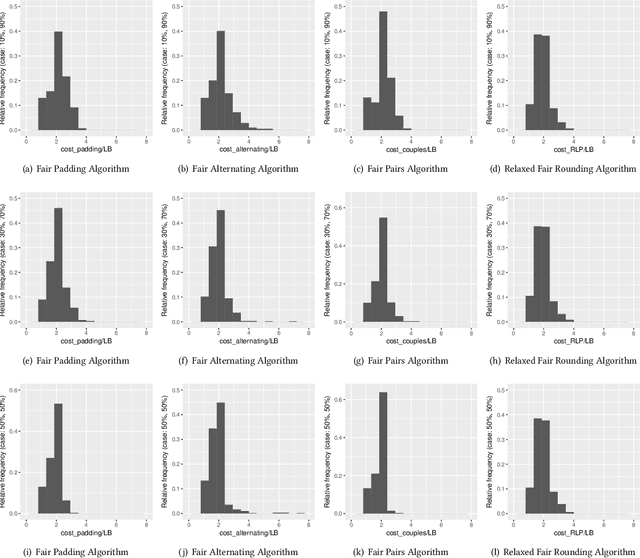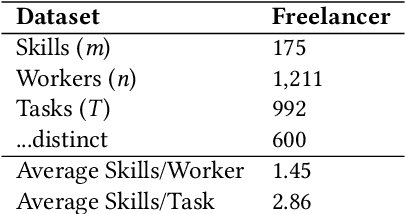Algorithms for Fair Team Formation in Online Labour Marketplaces
Paper and Code
Feb 14, 2020



As freelancing work keeps on growing almost everywhere due to a sharp decrease in communication costs and to the widespread of Internet-based labour marketplaces (e.g., guru.com, feelancer.com, mturk.com, upwork.com), many researchers and practitioners have started exploring the benefits of outsourcing and crowdsourcing. Since employers often use these platforms to find a group of workers to complete a specific task, researchers have focused their efforts on the study of team formation and matching algorithms and on the design of effective incentive schemes. Nevertheless, just recently, several concerns have been raised on possibly unfair biases introduced through the algorithms used to carry out these selection and matching procedures. For this reason, researchers have started studying the fairness of algorithms related to these online marketplaces, looking for intelligent ways to overcome the algorithmic bias that frequently arises. Broadly speaking, the aim is to guarantee that, for example, the process of hiring workers through the use of machine learning and algorithmic data analysis tools does not discriminate, even unintentionally, on grounds of nationality or gender. In this short paper, we define the Fair Team Formation problem in the following way: given an online labour marketplace where each worker possesses one or more skills, and where all workers are divided into two or more not overlapping classes (for examples, men and women), we want to design an algorithm that is able to find a team with all the skills needed to complete a given task, and that has the same number of people from all classes. We provide inapproximability results for the Fair Team Formation problem together with four algorithms for the problem itself. We also tested the effectiveness of our algorithmic solutions by performing experiments using real data from an online labor marketplace.
 Add to Chrome
Add to Chrome Add to Firefox
Add to Firefox Add to Edge
Add to Edge